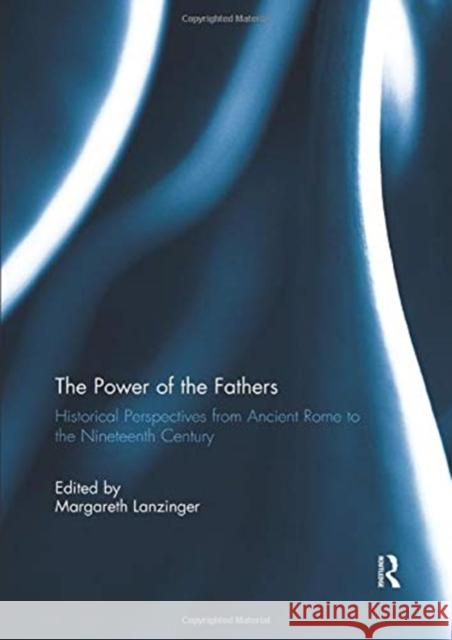The Power of the Fathers: Historical Perspectives from Ancient Rome to the Nineteenth Century » książka
The Power of the Fathers: Historical Perspectives from Ancient Rome to the Nineteenth Century
ISBN-13: 9781138379367 / Angielski / Miękka / 2018 / 108 str.
The Power of the Fathers: Historical Perspectives from Ancient Rome to the Nineteenth Century
ISBN-13: 9781138379367 / Angielski / Miękka / 2018 / 108 str.
(netto: 233,18 VAT: 5%)
Najniższa cena z 30 dni: 236,70
ok. 22 dni roboczych.
Darmowa dostawa!
The book examines the topic of paternal authority as it developed over a long period of time. The focus is on the power of fathers as manifested within a complex fabric of legal, social, economic, political and moral aspects. In early modern times, a father's power was based upon his personal and legal position as the one responsible for the family and the household in the sense of an economic unit, as well as on his moral authority over all those who belonged to said household. At the same time, the father was subject to public control, and his legal status was characterized not only by power, but also by obligations. This status was modelled after the figure of the pater familias as conceived of in Roman law-a concept that remained relevant up into the nineteenth century, though not without changes. Ultimately, the figure of the pater familias came to overlap with the modern-era perception of fathers' disempowerment. The chapters of this book analyse the public responsibility of fathers in the case of an adulterous daughter, legal acts of emancipation by which a son could gain independence from his father, and various opinions with regard to "indulgent" fathering, paternal authority over married sons, and provisions set out in wills. This book was originally published as a special issue of The History of the Family.











